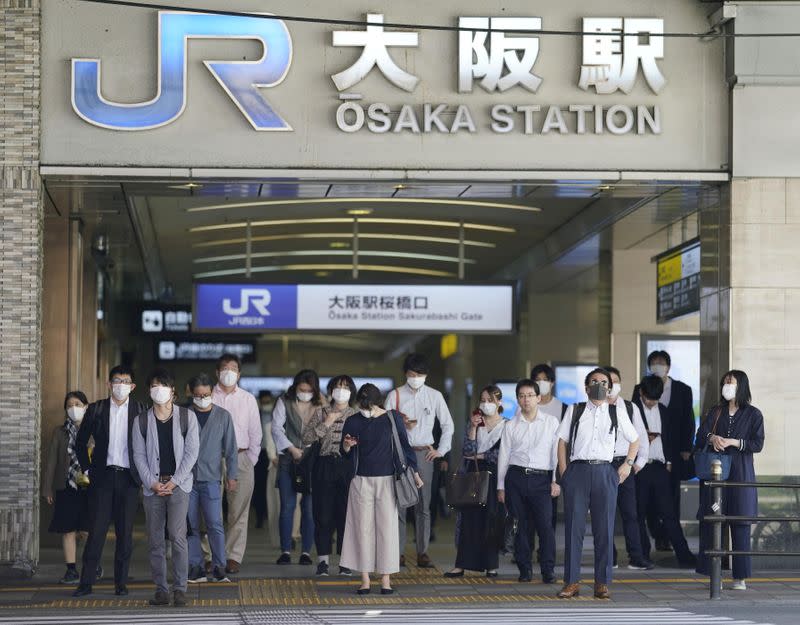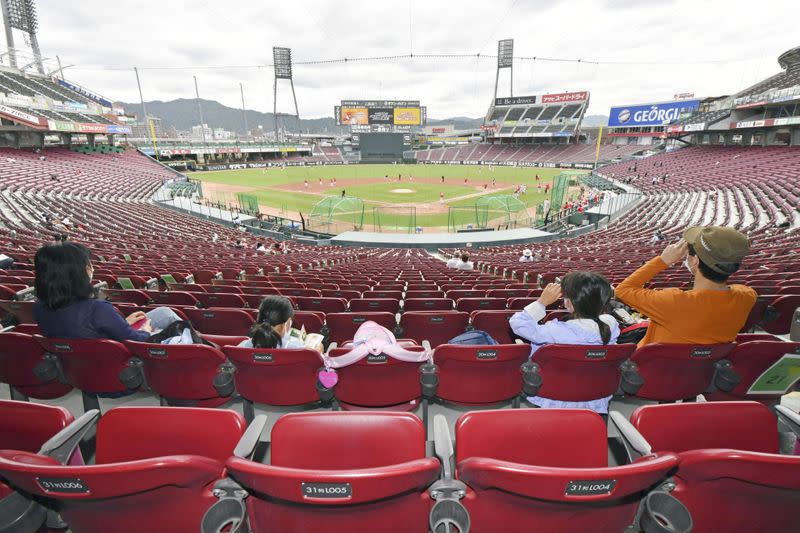Japan may end Tokyo state of emergency as early as next week: PM
By Naomi Tajitsu and Linda Sieg
TOKYO (Reuters) - Japan may lift the state of emergency in Tokyo as early as next week if new coronavirus infections remain low, Prime Minister Shinzo Abe said on Thursday, raising hopes that the world's third-largest economy may soon start recovering from recession.
After ending its state of emergency in Osaka, Kyoto and Hyogo following a drop in the number of infections, Abe said that Tokyo and four other prefectures including the northern island of Hokkaido will stay under restrictions for now.
But a week after a stay-at-home recommendations were lifted for much of the country, Abe said that Japan's capital city and its surrounding prefectures were showing promising signs that the rate of infections is coming under control.
"We will meet with experts (on Monday) to update the situation on infections," Abe told reporters.
"If the current situation continues, it is possible that the state of emergency could be lifted in those areas."
Getting greater Tokyo, which accounts for about one-third of Japan's gross domestic product, back on its feet is vital to the country's overall economic recovery.
Unlike many other countries, Japan has not suffered an explosive surge in infections, with 16,433 confirmed cases including 784 deaths as of Thursday morning, according to public broadcaster NHK.
But the outbreak and restrictions on activity and business under the state of emergency have already tipped the economy into recession. Prime Minister Shinzo Abe, like other world leaders, has been striving to balance the need to contain the pathogen's spread with the need to keep the economy running.
So far, the western prefectures of Kyoto, Osaka, and Hyogo are averaging at 0.09 infections per 100,000 people, in contrast with 0.59 for Tokyo and surrounding areas and 0.69 for the northern island of Hokkaido, where the emergency also remains intact.
"I believe it is safe to lift the state of emergency in Kyoto, Osaka, and Hyogo given that the number of new infections in recent days are under 0.5 cases per 100,000 people and medical services are under control," Economy Minister Yasutoshi Nishimura earlier told a panel of experts, who signed off on the change.
Osaka has recently seen no new cases, while 11 new infections were confirmed in Tokyo on Thursday.
"I am for the lifting of the state of emergency in Kansai (western Japan) area. It is expected that the number of cases will grow again soon. But, I bet (and hope) people can manage the spread better next time even without the emergency declaration," said Yuki Furuse, a Kyoto University professor working with the government's coronavirus experts group.
Japan's low rate of testing for the virus means the scope of the outbreak may be underestimated, other experts have said.
Abe announced a week ago that the blanket state of emergency instated across Japan last month would be lifted in most places.
(Additional reporting by Sakura Murakami, Hitoshi Ishida, and Rocky Swift; Editing by Chang-Ran Kim, Steve Coates & Simon Cameron-Moore)



